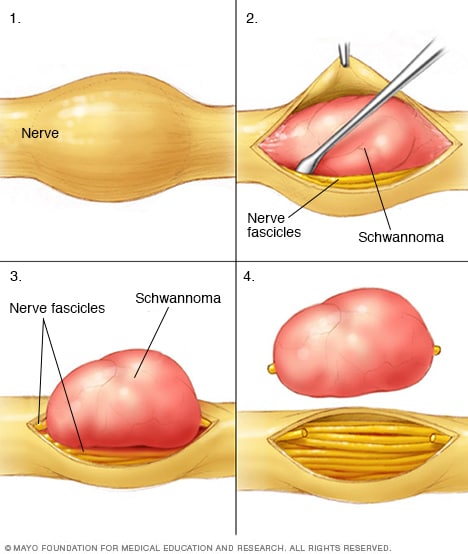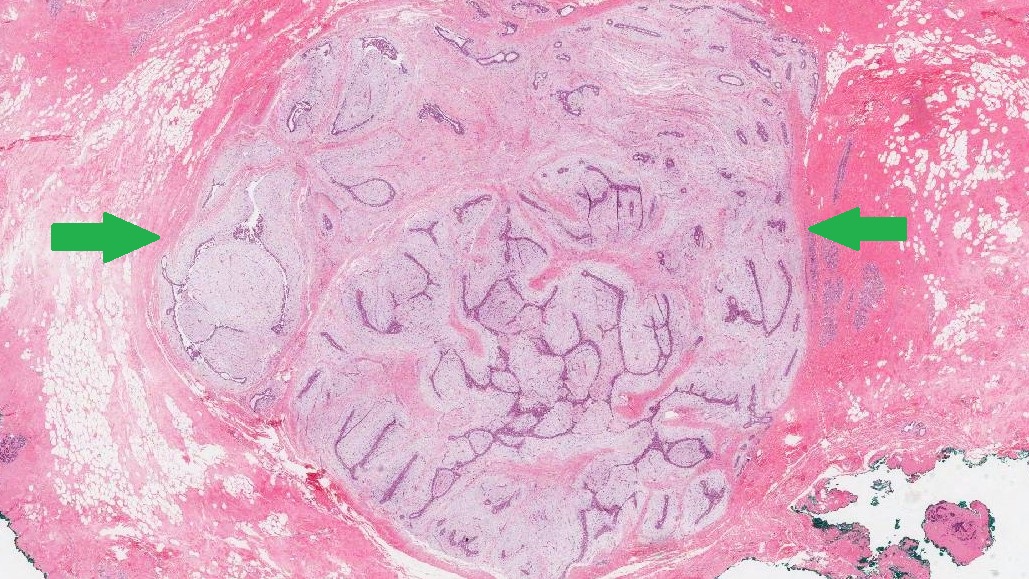
Un tumor benigno es un crecimiento anormal de células que no se propaga a otras partes del cuerpo. Los tumores benignos suelen ser inofensivos y no causan ningún problema de salud. Sin embargo, en algunos casos, pueden causar dolor, presión o otros síntomas.
Causas
La causa exacta de los tumores benignos no se conoce en todos los casos. Sin embargo, se cree que pueden ser causados por una combinación de factores, incluyendo:
- Mutaciones genéticas: Las mutaciones genéticas pueden provocar que las células crezcan de forma anormal.
- Exposición a sustancias químicas: La exposición a ciertas sustancias químicas, como el asbesto, puede aumentar el riesgo de desarrollar tumores benignos.
- Lesiones: Las lesiones en el tejido pueden provocar el crecimiento de células anormales.
Síntomas
Los síntomas de un tumor benigno pueden variar en función de la ubicación y el tamaño del tumor. Los síntomas comunes incluyen:
- Un bulto o masa
- Dolor
- Presión
- Cambios en la apariencia de la piel
Diagnóstico
El diagnóstico de un tumor benigno suele realizarse mediante una combinación de pruebas, incluyendo:
- Examen físico: El médico examinará la zona afectada para detectar bultos o masas.
- Pruebas de imagen: Las pruebas de imagen, como una radiografía, una ecografía o una resonancia magnética, pueden ayudar a determinar el tamaño y la ubicación del tumor.
- Biopsia: En algunos casos, se puede realizar una biopsia para obtener una muestra de tejido del tumor para su análisis.
Tratamiento
El tratamiento de un tumor benigno suele ser necesario solo si el tumor causa síntomas o si existe el riesgo de que se convierta en un tumor maligno. Las opciones de tratamiento incluyen:
- Observación: En algunos casos, el tumor puede ser observado sin tratamiento.
- Cirugía: La cirugía es el tratamiento más común para los tumores benignos.
- Radioterapia: La radioterapia puede utilizarse para reducir el tamaño del tumor.
- Quimioterapia: La quimioterapia rara vez se utiliza para tratar los tumores benignos.
Complicaciones
Las complicaciones de un tumor benigno son poco frecuentes. Sin embargo, en algunos casos, el tumor puede crecer y causar problemas, como:
- Presión sobre los nervios o los vasos sanguíneos
- Infección
- Hemorragia
Prevención
No hay forma de prevenir completamente los tumores benignos. Sin embargo, se pueden tomar medidas para reducir el riesgo, como:
- Evitar la exposición a sustancias químicas cancerígenas.
- Mantener un peso saludable.
- Llevar una dieta saludable.
- Hacer ejercicio regularmente.
Conclusiones
Los tumores benignos son crecimientos anormales de células que no se propagan a otras partes del cuerpo. Los tumores benignos suelen ser inofensivos y no causan ningún problema de salud. Sin embargo, en algunos casos, pueden causar dolor, presión o otros síntomas.
El tratamiento de un tumor benigno suele ser necesario solo si el tumor causa síntomas o si existe el riesgo de que se convierta en un tumor maligno. Las opciones de tratamiento incluyen: observación, cirugía, radioterapia y quimioterapia.
Las complicaciones de un tumor benigno son poco frecuentes. Sin embargo, en algunos casos, el tumor puede crecer y causar problemas.
WebA neoplasm which is characterized by the absence of morphologic features associated with malignancy (severe cytologic atypia, tumor cell necrosis, and high mitotic rate). Benign. WebIn angiomyolipoma (AML) — sometimes called renal angiomyolipoma — cells inside your kidney grow in ways that aren’t typical. These cells form a mass called a tumor. WebA neoplasm is an abnormal growth of cells, also known as a tumor. Neoplastic diseases are conditions that cause tumor growth. Growth can be either.

Benign peripheral nerve tumor – Symptoms and causes – Mayo Clinic – Source: mayoclinic.org

Neoplasia benigna | MyPathologyReport.ca – Source: My Pathology Report

Benign Neoplasm of Colon and Rectum | PPT – Source: slideshare.net
Que Es Benign Neoplasm, Benign vs. Malignant Neoplasms Medical Coding, 9.96 MB, 07:15, 6,738, MedicalCodingCert, 2013-07-30T08:14:52.000000Z, 2, Benign peripheral nerve tumor – Symptoms and causes – Mayo Clinic, 554 x 468, jpg, , 3, que-es-benign-neoplasm
Que Es Benign Neoplasm. Web¿Qué es una neoplasia benigna? Neoplasia benigna es un término médico utilizado para describir un tipo de tumor no canceroso. Es un término descriptivo que incluye muchos. WebUn tumor benigno es un tipo de neoplasia que, a diferencia de los tumores cancerosos, carece de malignidad. Se trata de un tumor que no se extiende de forma agresiva, no.
Benign vs Malignant Neoplasms Medical Coding cco.us/
Q: Neoplasms — I really, really like neoplasms. I don’t know why but I just do. What’s the difference between benign and malignant neoplasms?
A: It can get very confusing, but keep in mind that benign is not bad, malignant is monstrous. It’s not good. Let’s look at what we’ve got there; I’ve got a couple of samples. This is actually art, but it is what I would draw on a board when I was teaching. I’d say, you have all these cells and let’s say all of your cells are circles — because actually plant cells are square, if you guys didn’t know that from your school. Let’s say we’ve got all of these nice little circles and squares and they’re your cells and they are working well together, they are in good format and everything; but did you notice some of these are darker than the other ones, so they’re different. Let’s say, all of the normal cells doing their function are the lighter color, but if cells change or mutate they aren’t the same as the other cells and these change colors.
So, let’s talk about this: Neoplasm is another word for tumor. In general, tumors occur when cells divide and grow excessively in the body. Normal cells grow and have division and are strictly controlled. They know their job and they do it well. New cells are created to replace the old ones or to perform new functions. In other words, if you burn yourself, those cells died and they’re taken off and new cells replace them and do the same function that the old cells were supposed to do.
Cells that are damaged or no longer needed die to make room for healthy replacements — burn is an excellent example. If the balance of cell growth and death is disturbed, a tumor may form. Again, think of this picture with the circles and the squares.
Now let’s consider the cells. They all have a function and when an abnormal cell starts replicating itself it takes over space of the normal cells and makes it difficult for them to function, then you’re going to cause a tumor. So you saw those dark cells, let’s say that those dark cells circles don’t work as well as the normal light-colored circles cells. That would cause a tumor because they’re not working properly. Now, when those not normal dark cells start replicating themselves that’s a problem, that’s malignant. They start growing and they’re taking over and mutating and they don’t work as well as the normal light-colored cells. They’re similar but they’re not the same; therefore, the body can’t function as properly as it needs to.
Get more medical coding training, medical coding tips, medical coding certification and free medical coding webinars at cco.us/
Benign peripheral nerve tumor – Symptoms and causes – Mayo Clinic
Que Es Benign Neoplasm, WebIn angiomyolipoma (AML) — sometimes called renal angiomyolipoma — cells inside your kidney grow in ways that aren’t typical. These cells form a mass called a tumor. WebA neoplasm is an abnormal growth of cells, also known as a tumor. Neoplastic diseases are conditions that cause tumor growth. Growth can be either.
Benign vs. Malignant Neoplasms Medical Coding

Source: Youtube.com
What are the differences between benign & malignant tumours

Source: Youtube.com